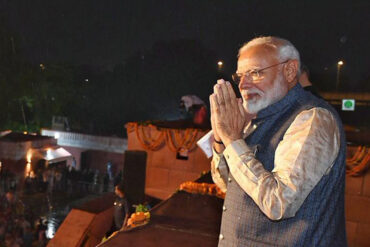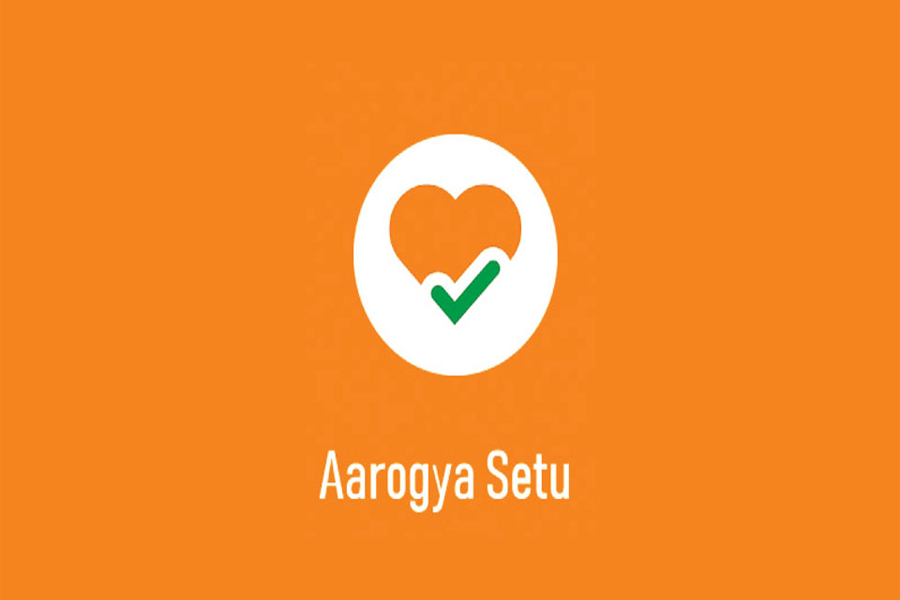The Centre introduced the Aarogya Setu app last month ostensibly to keep track of corona virus infectees. It was clarified that the uploading of it in mobile phones was voluntary. Soon enough, however, the Government made it mandatory for all employees, both public and private, to upload the app in their mobile phones.
Several questions arise. First, what is the constitutional or legal basis for issuing this order and making it mandatory? Second, it is implicit in the order that all employees – public or private – must own a mobile phone. Can the Government force anyone to buy and keep a mobile phone with him? If an employee thinks he can do without a mobile phone and does not need one, under what law can he be compelled to buy one? Any executive order must have a legal or constitutional basis. Otherwise, its legality can be challenged in any court of law and may be struck down by the court. The Government also makes it obligatory on all employers to ensure cent per cent compliance with the order.
The app asks for a person’s name, age, gender, health status and travel history. It also checks whether the employee belongs to any exempted category of professionals during the lockdown period. Once the app has been downloaded, it becomes mandatory for the owner to give continuous Bluetooth access and location data. This is nothing but continuous surveillance on a citizen’s movement. Does the Constitution or any law in the statue book empower the executive to mount such a round-the-clock, continuous surveillance?
Meanwhile, the Noida police have issued an order that all residents in the Noida area must download the app. The police will regularly check the mobile phones and if anyone is found not to have downloaded it, it will amount to “violation of lockdown rules” (pray, what is the legal basis of these rules?) and can be “punishable under relevant sections”. Pray, which sections of what law? The answer is a thunderous silence. The threat is open and clear. If you do not download the Aarogya Setu app, you may not only lose your job but find yourself behind the bars.
The Government wants to bring every citizen under its constant surveillance. The corona pandemic came as a godsend to bring into being another instrument of intrusion into a citizen’s private life. All the responsibility is on the user. The Government does not take any responsibility for any wrong information given by the app or even if there is an “unauthorized access” to the user’s private information. You, the citizen, are always at the receiving end. If the app says you are in immediate danger of contracting the corona virus, you will be dealt with accordingly. But if the information ultimately proves to be false, the Government has no responsibility Nor has the person or the organization who/which devised the app. Even if your personal data are revealed, the Government is not responsible. It is a one-way street. The heads I win, the tails you lose.
Although the app is meant ostensibly for dealing with the corona virus endemic, the Government has not said that it will be deactivated after the endemic goes and whether the data obtained will be destroyed or kept permanently for possible future use.
The problem arises because whether the citizen has the right to privacy is a grey area of the Constitution. A nine-judge bench of the Supreme Court headed by the then Chief Justice J S Khehar ruled on August 24, 2017, that the Right to Privacy is a fundamental right of the citizens of India under the Constitution (mostly under Article 21 and additionally under Part III which relates to Fundamental Rights). In their 547 page judgment, the judges were unanimous that Indians enjoy a fundamental right to privacy which is intrinsic to life and liberty This judgment overruled two earlier judgments of the Supreme Court (one in the M P Sharma case of 1958 and the other in the Kharak Singh case of 1961) that held the right to privacy is not protected by the Constitution.
It is interesting to note that whichever party ruled at the Centre – from the Congress to the BJP – contended, while in power, that a citizen cannot claim right to privacy under the Constitution. But Article 13 of the Constitution says: “All laws in force in the territory of India immediately before the commencement of this Constitution in so far as they are inconsistent with the provisions of this part shall, to the extent of such inconsistency, be void.” It means that the laws that were in force during the foreign rule that denied or curtailed fundamental rights stood null and void in independent India. In view of this, any executive order issued by any authority after the promulgation of the Constitution that curtails or denies the fundamental rights enjoyed by the citizens should be considered to be ultra vires of the Constitution and therefore void ab initio.
Trying to subvert the constitutional rights of the citizen through the back door by issuing executive fiats should be condemned. If this insidious practice is accepted by the people, it will pave the way for the transformation of India from a democratic State to an authoritarian State. The issue is not the mandatory downloading of this or that app. The larger and most important issue is whether the executive has the constitutional right to compel a citizen to do something (like the downloading of the Aarogya Setu app) which does not impinge on or compromises the security and sovereignty of India.







